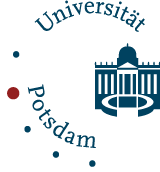Hylomorphism in Kant and German Idealism
Organized by James Conant, Eli Friedlander, Johannes Haag and David Wellbery
The workshop is taking place within the context of a three-year German-Israel Foundation (GIF) project entitled “Life and Mind: An Exploration of the Metamorphoses of the Kantian Moment in Philosophy”. The following is a short description of the main aims of the research project:
Our aim is to engage a fundamental configuration in philosophy that we call the Kantian moment. We do not plan to vindicate a strictly Kantian approach to philosophy, but rather to explore an interconnected space opened up or initiated in Kant’s philosophy. Our first guiding assumption is that this configuration constitutes a moment of incomparable richness and force in philosophy. Our second assumption is that the approach and mode of investigation of this subject matter should be systematic rather than merely historical. Our third assumption is that insofar as the Kantian moment is to be understood in its systematic articulation it can inform and transforms contemporary philosophy. In other words it is a configuration of philosophy that is far from being exhausted and left behind by later developments.
The richness and complexity of the Kantian moment requires us to focus our project on a guiding theme through which the broad range of issues can be refracted. This theme is the relation of life and mind. The choice of this focus means that the Kantian problematic is approached by a concentration on the perspective opened most explicitly by the Critique of the Power of Judgment. We take this work not only to present Kant’s views on aesthetics or on the character of organic life, but also to afford a broader sustained reflection on the living mindfulness and on the interconnections of human subjects in a field of purposive experience of the world.
Assessing the possibility of a critical idealism in contemporary philosophy is of the utmost importance in addressing the rise of the role of science in the attempts to understand thinking life. It opens the option of a naturalism that is not necessarily simply identified with the results of science, but which would provide a measure to assess the place of empirical investigation in the understanding of human mindedness within a more comprehensive view of nature. Our investigation of the legacy of the Third Critique has further implications for the approach to the problems of culture, history and society and would constitute an original engagement with, and contribution to, contemporary analytic attempts to reconceive the domain of both the theoretical and the practical in ways that are more open to Aristotelian and Hegelian insights.
The primary organizers are Professor Johannes Haag of Potsdam University and Professor Eli Friedlander of Tel Aviv University. The primary funding is from a GIF grant, supported by additional assistance from the University of Chicago and the FAGI of the University of Leipzig.
Program
Thursday, June 15th
10:30-11:00 Reception
11:00-12:30 Session 1: David Wellbery (Chicago): „Remarks on Goethe's Concept of Form" (Chair: Hamawaki)
12:30-14:30 Lunch
14:30-16:00 Session 2: Eli Friedlander (Tel Aviv):“An Aesthetics of the Intuitive Understanding" (Chair: Gorodeisky)
16:00-16:30 Coffee Break
16:30-18:00 Session 3: Jonathan Soen (Tel Aviv): „Originality and the Limit of Form? (Chair: Grüne)
Friday, June 16th
9:00-10:30 Session 1: Stephen Engstrom (Pittsburgh): „The Identity of Reason" (Chair: Haag)
11:30-11:00 Coffee Break
11:00-12:30 Session 2: Anastasia Berg (Chicago): "Overcoming the Dualism of Reason and Sensibility in Kant’s Practical Philosophy" (Chair: Conant)
12:30-14:30 Lunch
14:30-16:00 Session 3: Paul Franks (Yale): "Finality and Form in Kant's Critical Philosophy" (Chair: deVries)
16:00-16:30 Coffee Break
16:30-18:00 Session 4: Matthias Haase (Chicago): „Hegel's Logic of Life and the Incomprehensibility of the Plant" (Chair: Friedlander)
